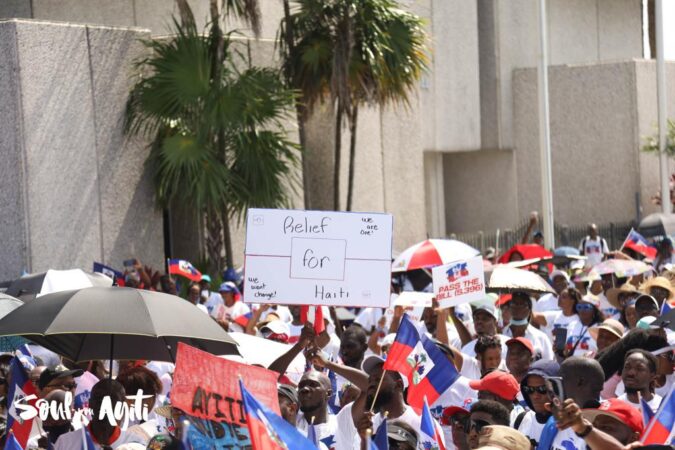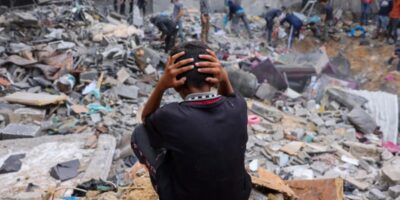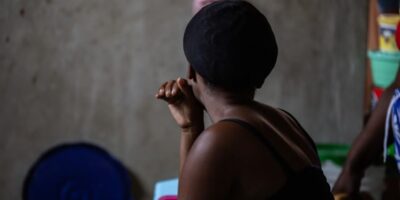Some commentators have accused the pastor of everything from being a pawn of the United States to positioning himself to run for president
The debates that have unfolded over the past two weeks following the « Relief for Haiti » march on July 9th have been unsettling, and have highlighted the deep divisions within our community.

If you were to believe the commentaries, you would conclude that Pastor Gregory Toussaint is solely responsible for all of Haiti’s problems, including the assassination of Papa Dessalines.
Some commentators have accused the pastor of everything from being a pawn of the United States to positioning himself to run for president. One particularly well-known Canada-based commentator even accused Pastor Toussaint of raising $200 million for the march but only spending $1 million. The implication is that the pastor pocketed the balance of $199 million for personal gain.
If you were to believe the commentaries, you would conclude that Pastor Gregory Toussaint is solely responsible for all of Haiti’s problems, including the assassination of Papa Dessalines.
The division has been most pronounced within the Christian community, creating tensions between pastors themselves and also between Christians and Vodouists. Additionally, there is a growing divide between believers and non-believers. Haiti’s best interests are lost in the midst of these internal conflicts and divisions among her children.
Others have criticized the march itself, arguing that it lacked a clear message and failed to serve a meaningful purpose. These criticisms have some merit. The march organizers had three demands:
1) Support the S.396 / H.R. 1684 Bill – Haiti Criminal Collusion Transparency Act of 2023
2) Keep the Biden Humanitarian Parole Process
3) Implement a Plan to Legalize Parolees after Two-Year Period”
While these demands were clear, they were not effectively emphasized during the actual event. There may be rational explanations for this gap. However, what is important to remember is that the march was still a significant event, and it is too early to tell what its long-term impact will be. If the organizers follow through with their commitment to hold elected officials accountable, it could have a lasting impact on Haiti’s future.
What is important to remember is that the march was still a significant event, and it is too early to tell what its long-term impact will be.
Beneath the debates lies a deeper issue: a crisis of trust within our community. It may be convenient to attribute Haiti’s problems solely to the international community, but the responsibility to support or distrust another Haitian ultimately lies with each of us. This crisis of trust, particularly within the diaspora, is concerning given the existential threats Haiti is facing and the significant role we could play in addressing them.
I have also observed growing divisions among Haiti advocates. This poses a threat to our collective strength, ability to present viable alternatives, and potential impact. Some argue that the international community’s interference in Haiti’s affairs stems from a deep-seated hatred for Haiti because our ancestors dared to challenge the world order of white supremacy. Others claim that powerful nations, particularly the United States (US), aim to exploit Haiti’s valuable resources, such as gold, oil, and iridium.
While some of these arguments are valid, we cannot rely on them as the exclusive explanation for our current predicament. Moreover, we are still left with the question of what to do. I share the view expressed by Chimamanda Ngozi Adichie in her Ted Talk titled « The Danger of a Single Story. » Ngozi noted that « Stereotypes created by a single story are not necessarily untrue, but they are incomplete. They make one story become the only story. »
Beneath the debates lies a deeper issue: a crisis of trust within our community.
The problems of Haiti are complex and involve a society whose citizens killed their nation’s founding father. Laying the blame solely at the feet of the international community is not just a single story, it also robs us of any agency to change and chart our own path.
Achieving Sovereignty
In recent days, Haitian football fans (soccer here in the US) have been enthralled by the qualification and participation of our women’s soccer team in the FIFA World Cup. However, it would surprise most people to learn that a majority of the players are trained either in the US or Europe. Additionally, out of the 13 support staff that traveled with the team, only two are Haitians, and the other nine are French. Despite our pride, the Haitian government and civil society have provided minimal financial support to the team. This marks the first time the Haitian women’s team has made it to the World Cup. And while we celebrate them, we leave it to the international community to finance their efforts.
This example is just one of many that vividly illustrate the Haitian dilemma. We often find ourselves as mere spectators, and at times, referees, in the most significant games of our national life.
Read also : Opinion | “The Best of Enemies” ou ce qu’il y a d’heureux dans l’inimitié
We clamor for sovereignty. It is our inalienable right to seek self-determination and self-governance. This means that Haiti has the right to make its own decisions about its political, economic, and social future without foreign interference.
But achieving sovereignty is an act of choice that requires collective action.
I believe we need to have a positive vision for the future, which is why I propose a focus on three key areas: security, economy, and education.
Security
In my Op-Ed titled « A five-point inclusive plan for sustainable security and stability in Haiti”, I outlined five strategies to address insecurity. The plan prioritized strengthening the Haitian National Police (HNP) and Army. It also highlighted the importance of mobilizing private security companies whose officers possess relevant training and understand the respect for hierarchy. Additionally, I emphasized the need for civil society to collaborate with security forces through a better-organized approach to the Bwa Kale movement. Finally, I proposed a narrow role for the international community to support our national efforts. Ultimately, we all agree that creating a secure environment is essential for businesses to operate, for citizens to live and move safely, and for successful elections.
Economy
To rebuild our economy and reduce our dependence on foreign aid, we must diversify our economy and build the pillar for long-term stability and growth. To that end, we need to train and attract a new generation of business leaders, provide them with access to finance, and create an enabling business environment.
This approach will stimulate innovation and generate employment opportunities across various sectors, including manufacturing, services, tourism, and more. By fostering entrepreneurship and supporting small and medium-sized enterprises, we can cultivate a vibrant and resilient economy. One key sector that demands attention is agriculture. Despite its declining contribution to GDP, agriculture still plays a vital role in Haiti’s economy and warrants significant investments to modernize and revitalize it.
Education
Currently, education in Haiti is not adequately focused on preparing our population for the demands of the global economy. To achieve sustainable economic growth, we must prioritize education and skills development that aligns with the changing landscape of industries and technology. By emphasizing digital and technology-based education, we can empower our people to thrive in the digital age and seize opportunities in the growing global market. Skills in computer science, software development, and data analytics will become crucial assets in accessing remote work, freelancing, and providing digital services to clients worldwide. Moreover, fostering a culture of innovation and entrepreneurship will cultivate a generation of forward-thinking citizens who can drive the growth of Haitian tech startups and tailor digital solutions to meet local needs effectively.
To achieve sustainable economic growth, we must prioritize education and skills development that aligns with the changing landscape of industries and technology.
As I began, I will close by highlighting the need for us to bridge our divides. The Relief for Haiti showed us what is possible. We must take that opportunity to leverage our collective power.
We all want Haiti to regain its sovereignty but that demands our collective effort, determination, and a shared vision for the future. While the challenges may seem overwhelming at times, we cannot lose hope. Instead, let us develop and hold on the vision to our shared vision for Haiti.
This shared vision is crucial but to find it we must set aside our differences. I truly believe that if we overcome our minor divisions, we can begin to foster this much-needed sense of national unity and collective purpose.
The Relief for Haiti showed us what is possible. We must take that opportunity to leverage our collective power.
Ultimately, it is up to us, as Haitians, to exercise our agency by actively participating in the political process and holding our leaders accountable. Let us draw inspiration from the steadfast spirit of our ancestors, who fought for freedom and justice. Their legacy lives on in us, fueling our pursuit of a sovereign, prosperous, and dignified Haiti.
© Cover image : Gregory Toussaint Creole/Facebook
Gardez contact avec AyiboPost via :
▶ Notre canal Telegram : cliquez ici
▶ Notre Communauté WhatsApp : cliquez ici







Comments